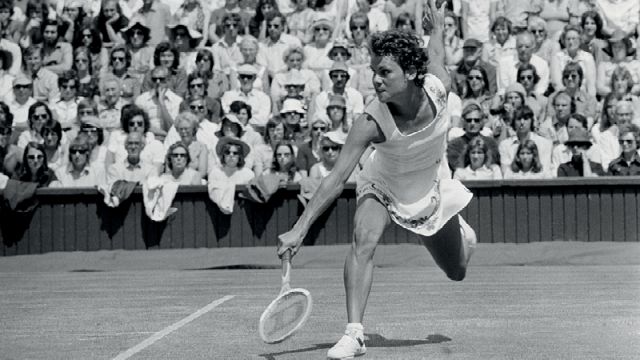Indigenous Sunshine
Indigenous plays look set to provide many of the highlights of our 2022 mainstage seasons. David Spicer reports.
A heady mix of comedy, musical theatre, dance and in-your-face drama will be included in a remarkable year of productions. Artists range from leading creators of the last 20 years like Wesley Enoch and Stephen Page, to newer voices including Meyne Wyatt and Nakkiah Lui.
Sunshine Super Girl by Andrea James.
State Theatre Company of South Australia (September) and Melbourne Theatre Company (November).
I was lucky enough to be a ‘spectator’ for this magical night in the theatre at the premiere inside the Sydney Town Hall. It fuses the extraordinary Australian story of Wiradjuri Australian tennis legend Evonne Goolagong Cawley with beautiful stagecraft.
At its core is the transformation of a seven-year-old Aboriginal girl, peering longingly onto a tennis court, with not enough money for a racquet or sandshoes, into a world champion.
The set (what an apt word) for the production is (naturally) a tennis court. Members of the audience are on either side in the grandstands.
Onto the court are projected videos (designed by Mic Grunchy) of various surfaces - from the lush green of Wimbledon, to the red clay of Roland Garros, fluorescent sidelines of the US indoor circuit, disco floors of London and even an outback fishing spot.
The tennis action is elegantly and crisply portrayed through dance. For me it unlocked a distant memory of staying up late to watch Evonne win Wimbledon in 1980. The emergence of Evonne’s kindred spirit in Ash Barty makes this even more special.
Read our review of the original Sydney season
Black Cockatoo by Geoffrey Atherden
National Tour
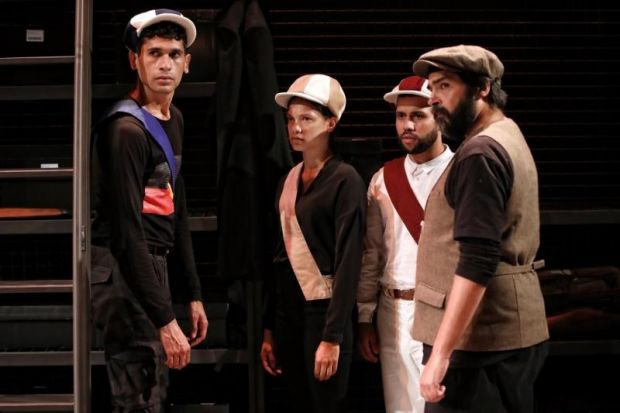 Image: Cast of the original prodution of Black Cockatoo. Photographer: Prudence Upton.
Image: Cast of the original prodution of Black Cockatoo. Photographer: Prudence Upton.
The theme of sport and indigenous Australia is also the central to Black Cockatoo, which premiered at Sydney’s Ensemble Theatre.
The play is about Jardwadjali man Johnny Muller, who made history in 1868 when he led the first team to play cricket against the English on their home turf.
Stage Whispers reviewer Frank Hatherley lauded the brilliant vision for the play.
“The setting is the back room of a museum, a storage unit with many itemised boxes and a large, rolling ladder.
“Into this storeroom Geoffrey Atherden brings a friendly curator with five precious items, including a boomerang and a watch, which he leaves with various audience members. The curator primes us all how to cheer, boo or groan when the results of the cricketers are revealed - 14 wins (hooray!), 14 losses (boo!) and 19 draws.
“Crashing into the storeroom come five Indigenous members of a group intent on adding truth to the narrative, and from then on we go back and forth from a story of yesterday’s cricketers to today’s black issues.
“Johnny Mullagh - by far the most accomplished cricketer - regularly top scores, meets Lady Lydia Bardwell and learns to read and write. The Indigenous cast play all the white characters.”
Read Frank Hatherley's full review of the original season
The Sunshine Club by Wesley Enoch and John Rodgers.
Queensland Theatre Company (July).
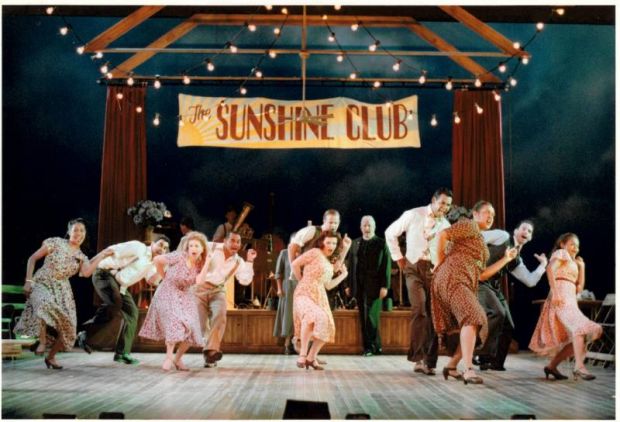 Image: The Sunshine Club - original production.
Image: The Sunshine Club - original production.
This musical, with its post-World War Two setting and a rich jazz score, first staged in 1999, is being revived under the direction of the writer - Noonuccal Nuugi man Wesley Enoch.
It is about a returned Aboriginal solider who finds attitudes are just as racist in late 1940s Brisbane as they were before the war, so he defiantly creates an Aboriginal dance club where he can dance with his white girlfriend.
Wesley Enoch told Beth Keehn, “I was 29 when I wrote that piece, so you start to think 'Who is that 29-year-old? And what does my current self, think about that 29-year-old? And what lessons have I learnt in the intervening years? And what can I bring to the work now as a director, as a writer?’ So, I'm interested in looking at the script and what it has to say about today.
“I think it's about storytelling around dancing together, about being together and not to feel frightened about that – and as we talk about treaties and sovereignty, the next evolution of our relationship with First Nations Australians, this is a moment to say 'It's a very long history, it's not a short one and there are lots of role models in our history that we can go back to and look at’.”
City of Gold by Meyne Wyatt
Black Swan Theatre (March) and Sydney Theatre Company (TBC).
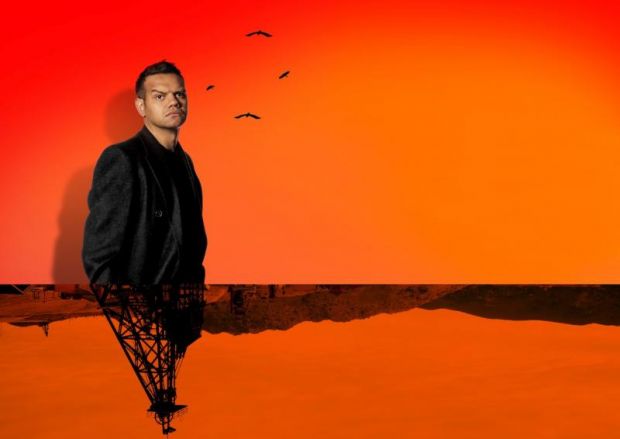 Image: Actor Meyne Wyatt in City Of Gold. Photographer: Joseph Mayers
Image: Actor Meyne Wyatt in City Of Gold. Photographer: Joseph Mayers
Wongutha-Yamatji man Meyne Wyatt penned his semi-autobiographical play City of Gold for Sydney’s Griffin Theatre. Audrey Journal reviewer Jason Blake described it as a play with “piss-take humour, feisty family drama and scalding diatribe.”
City of Gold burst onto national consciousness when Wyatt performed a monologue from it on the ABC’s Q and A. Here is a taste of it.
“Security guard following me around the store, asking to search my bag.
“Walking up to the counter first being served, second or third or last kind of shit.
“Or hailing down a cab and watching it slow down to look at my face and then drive off. More than once. More than twice. More than once-twice on any one occasion — yeah, that shit, I'll get weekly.
“Sometimes I'll get days in a row if I'm really lucky.
“And that's the kind of shit I let them think they're getting away with.”
“To be honest, I can't be bothered. I can't be bothered teaching their ignorant arses on a daily basis. I don't have the energy or the enthusiasm. It's exhausting, and I like living my life.”
New Work.
Wudjang: Not The Past
Bangara Dance Theatre, Sydney Theatre Company as part of the Sydney Festival (January) and Adelaide Festival (March).
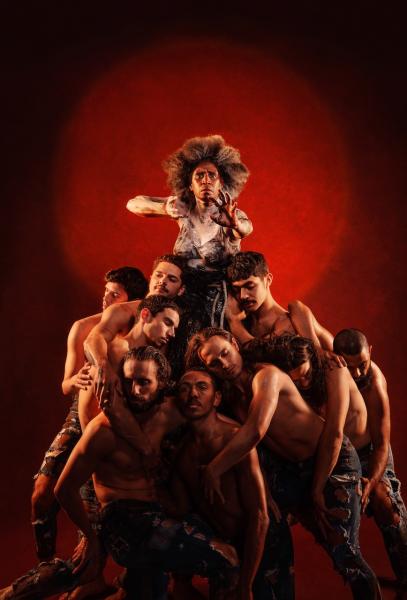 Photographer: Daniel Boud.
Photographer: Daniel Boud.
The largest work ever staged by the Bangarra Dance Theatre, Wudjang is described as a contemporary corroboree that “combines poetry, spoken storytelling and live music with our unique dance language.”
The production will feature 17 dancers, four musicians and five actors under the direction of Stephen Page, in a production co-written by award winning playwright Alana Valentine.
It commences in deep darkness just before dawn, when workmen find bones while excavating for a dam. Among them is a Yugambeh man Bilin, who convinces his colleagues to let him keep the ancestral bones. This ancestor is Wudjang, who longs to be reburied the proper way. With her young companion spirit Gurai, she dances and teaches and sings of the past, of the earth, of songlines.
Tiddas by Anita Heiss
La Boite Theatre in association with QPAC and Brisbane Festival (September).
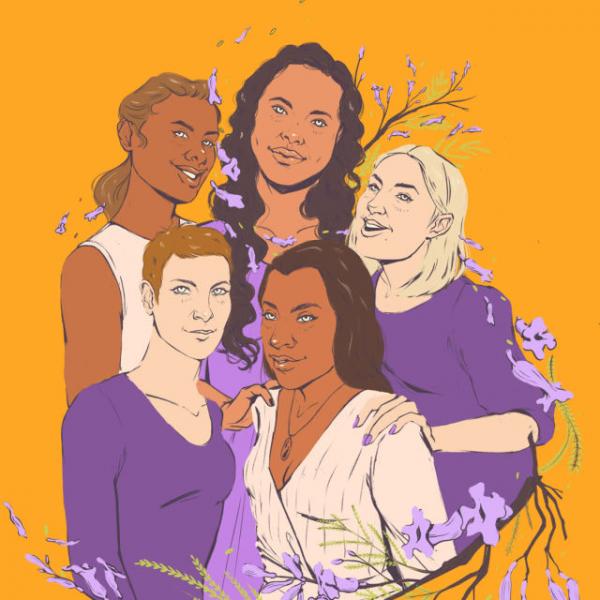
This page-to-stage adaptation of Anita Heiss’s best-selling novel, set in Brisbane, is about five best friends - Izzy, Veronica, Xanthe, Nadine and Ellen - who meet once a month to discuss books, life, love and the jagged bits in-between.
They love dissecting each other’s lives and think they know everything about their friends, but one weekend brutal secrets emerge as everything comes unstuck.
In a review of the book, Lynette Washington wrote that Tiddas “strikes a nice balance between typical chick lit subject matter (friendship, careers, romance and shopping) and race relations.”
A Letter for Molly by Brittanie Shipway
Ensemble Theatre (May).
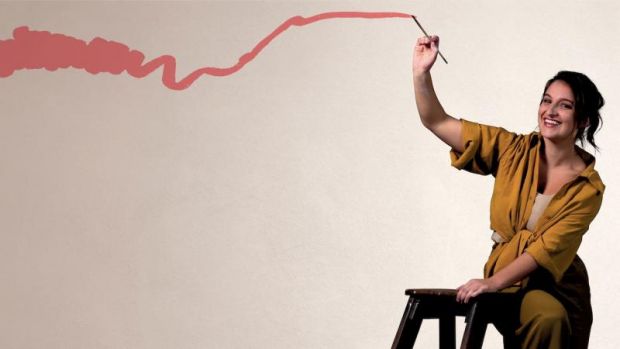 Photographer: Richard Hedger
Photographer: Richard Hedger
Gumbaynggir actor Brittanie Shipway is best known for her music theatre panache, first being introduced to Australia on The Voice in 2014. During the long lockdown she’s been busy developing a family drama which she will appear in.
A Letter for Molly is about a free-spirited artist, Renee, who has a sobering revelation at a New Year’s Eve Party.
She faces a life-changing decision which causes her to reflect on the tumultuous relationships between her mother, grandmother and great-grandmother.
Brittanie is helping foster other writers, leading the inaugural First Voices Festival for five selected indigenous writers in March.
Blaque Showgirls by Nakkiah Lui
Griffin Theatre (November-December).
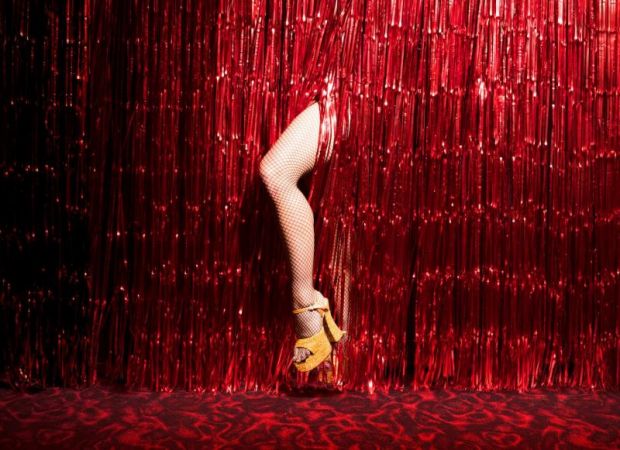
Prepare for plumage, puns, and political incorrectness gone mad in the unique style of the writer who penned the hit comedy Black is the New White.
The central character of Gamiliaroi/ Torres Strait Islander woman Nakkiah Lui’s new play is a lonely kid in rural Australia.
Fair-skinned Sarah Jane Jones knows she is the best dancer in the whole town of Chithole and she’s a proud Aboriginal woman. As it stands, there’s very little proof of either of these things.
So, when a long-lost photograph offers hope of her Indigenous ancestry, Sarah Jane hightails it to the glitziest casino in Queensland. Her mission? To land a role in the First Nations burlesque spectacular: ‘Blaque Showgirls’.
At What Cost? by Nathan Maynard
Belvoir Street Theatre (February).
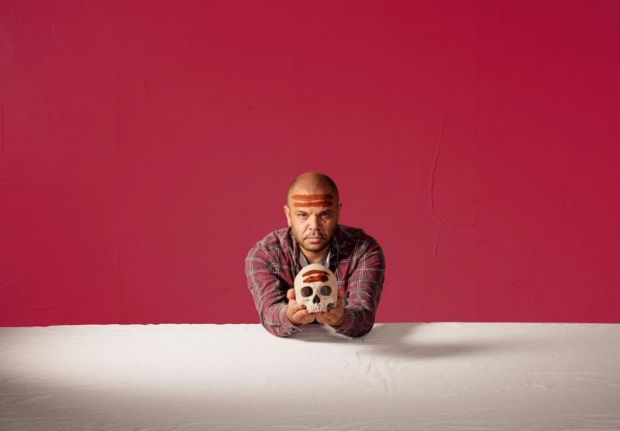 Image: At What Cost - Luke Carroll. Photo by Daniel Boud.
Image: At What Cost - Luke Carroll. Photo by Daniel Boud.
Tackling the thorny issue of identity is Palawa writer Nathan Maynard. His play is set in contemporary Tasmania. The lead character Boyd has got enough on his plate between keeping a young family together and his responsibilities to land and people.
But every year more and more folk are claiming to be Palawa too. Folk no-one’s heard of until now, who haven’t been ‘round before. Are they legit? Or are they ‘tick-a-box’? Who decides? And how? A trip for old mob and new back into a knotty past.
don’t ask what the bird look like by Hannah Belanszky
Queensland Theatre Company (May).
don’t ask what the bird look like by Yuwaalaraay woman Hannah Belanszky is described as “a gently funny almost gothic tale about land, family and reconnection”.
A young woman, Joan, searches for her father, who she has not seen since she was a child. She travels a long way into country where she finds Mick - a man who doesn't speak much, and bears little resemblance to the man who taught her to play Scrabble all those years ago.
Amid the flies, the heat, the dust and the stillness of this small river town, lurk many ghosts and mysteries.
Whitefella Yella Tree by Dylan Van Den Berg
Griffin Theatre Company (August).
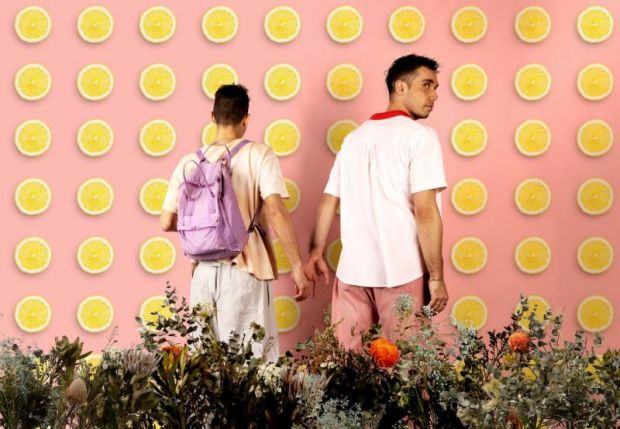
Just when you thought every conceivable angle of indigenous culture has been covered on stage, wait, there’s one more - a gay romance.
Sydney’s Griffin is staging a passionate love story between two teenage boys who meet under a lemon tree in the early 19th century. Throw into the mix two different tribes, Australia declaring itself a nation and white man’s religion, Whitefella Yella Tree just might be the most dramatic indigenous play ever written.
Subscribe to our E-Newsletter, buy our latest print edition or find a Performing Arts book at Book Nook.

